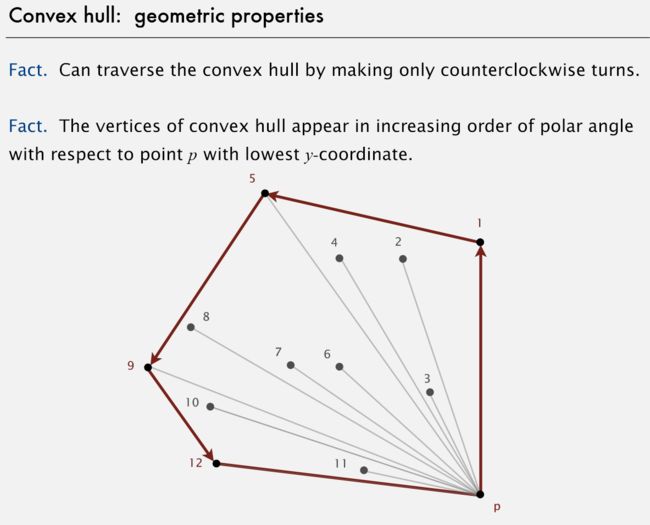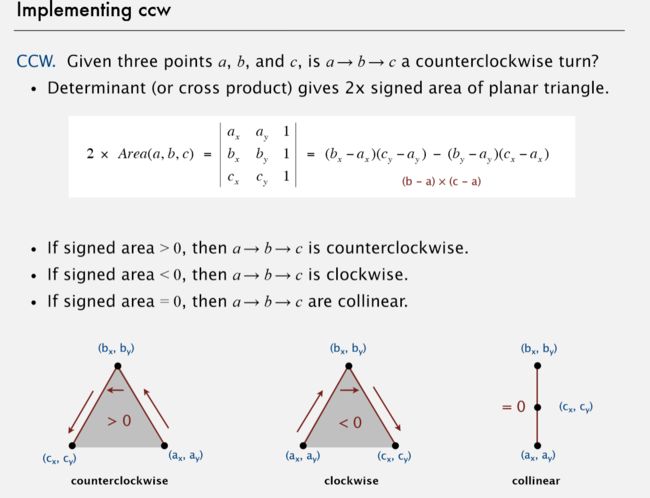- 用js搞清策略模式和责任链模式的区别
技术蹭蹭蹭
策略模式责任链模式javascript
策略模式和责任链模式都是常用的设计模式,它们的目的都是为了解耦和提高代码的可维护性。但是,它们的应用场景不同,下面对它们进行详细的比较和介绍。策略模式策略模式是一种定义一系列算法的方法,从概念上来看,所有这些算法完成的都是相同的工作,只是实现不同。它可以让算法的变化独立于使用它的客户端(也就是上下文),从而可以在不修改客户端的情况下,增加或替换算法。策略模式主要包含三个角色:上下文(Context
- 《TypeScript 高级类型实战指南:解决真实项目的 7 大痛点》
前端极客探险家
typescript前端vue.jsreact.js
目录标题本文解决的问题:一、表单系统:深度类型约束(可直接用于AntDesign表单)痛点:表单校验逻辑与TS类型脱节二、API响应:自动解包层叠类型(Axios拦截器整合)痛点:后端返回结构嵌套导致类型冗余三、ReduxToolkit:Action类型自动工厂痛点:手写ActionType容易出错四、组件Prop:动态约束联合类型(Vue/React通用)痛点:多形态组件的Prop类型难以维护五
- Qt中宏定义的理解(持续更新)
Giant NG
Qtqtc++宏定义
QT_BEGIN_NAMESPACE与QT_END_NAMESPACE以前Qt4是没有Qt命名空间的,后来才加上的,编译Qt源码时会有选项,是否将这些类放到专用的Qt命名空间内,默认是没有的。这就出来问题了,为了统一,如果你的代码在默认没有Qt命名空间的SDK中编译,那你就不用在前置声明下面这些类的时候加上命名空间,但如果你在有Qt命名空间的SDK中编译,那就得加上命名空间了,为了屏蔽这个差异,使
- KNN算法实例_手写识别系统
V文宝
机器学习算法
创建一个简单的书写识别系统,使用KNN算法来识别手写数字。分别使用手写KNN算法和调用scikit-learn库来实现。在数据处理过程中,将使用一个常见的手写数字数据集,如MNIST数据集。数据集我们将使用MNIST数据集,它包含60000个训练样本和10000个测试样本。每个样本是一个28x28像素的灰度图像,表示0-9之间的手写数字。手写KNN算法我们首先手写一个KNN算法来实现书写识别系统。
- vue+ts+electron从客户端跳转网页,public文件中的图片不显示如何解决以及动态环境配置中数据获取不到
是小许同学吖
vue.jselectronubuntu前端typescript
客户端跳转网页遇到的问题跳转新窗口打开浏览器客户端跳转网页,public文件中的图片不显示如何解决在.env.dev中设置的环境配置信息获取不到跳转新窗口打开浏览器从客户端跳转新窗口打开浏览器代码如下://跳转新窗口,打开浏览器constgoNewWindows=(item:any)=>{console.log(item
- 蓝桥杯常见算法模板(Python组)
-777.
蓝桥杯算法
目录1.二分1.整数二分(二分答案):2.浮点数二分(考不到)2.前缀和、差分1.前缀和一维:二维:2.差分一维:二维:3.贪心4.线性DP1.最长上升子序列(子序列问题一般下标从一开始)2.最长公共子序列3.常见背包模型1.0-1背包2.完全背包3.多重背包4.混合背包5.二维费用背包6.分组背包5.搜索1.DFS模板:1.子集问题2.全排列问题2.BFS6.数据结构1.并查集2.树状数组3.树
- Unity中WolrdSpace下的UI展示在上层
程序员也有头发
Unity开发unityui游戏引擎
一、问题描述Unity中Canvas使用WorldSpace布局的UI,想让它不被3d物体遮挡,始终显示在上层。二、解决方案使用shader解决在UI的材质中禁用深度测试(ZTest),强制UI始终渲染在最上层。Shader"Custom/UI_NoDepthTest"{Properties{...}SubShader{Tags{"Queue"="Transparent+1000"//设置高优先级
- 【玩转正则表达式】一套万能的针对所有场景都适用的写出正则表达式的步骤
ThisIsClark
玩转正则表达式正则表达式
正则表达式作为一个强力的文本模式匹配工具,在功能强大的另一面是不低的使用门槛。对于很多开发者或者使用者来说,最大的问题就是面对一串待匹配的字符串,不知道如何正确的写出正则表达式。我因为是公司正则表达式相关功能的开发者,所以用户使用正则相关的功能时经常都会来找我问一个问题:我有一个xxx的字符串,想提取某某元素,应该怎么写正则表达式。于是在这个过程中,我不光积累了对正则表达式语法的熟练程度,更是对如
- 深入理解信息检索之BM25算法
Lunar*
算法与优化自然语言处理人工智能
1.BM25算法简介BM25算法,全称为"BestMatching25",是由StephenRobertson和KarenSpärckJones在1990年代初基于早期的概率排名模型(如二元独立检索模型)发展而来。它通过一种概率论的方法来衡量文档与用户查询之间的相关性。2.BM25的核心原理BM25算法的核心在于两个主要的概念:逆文档频率(IDF)和词频(TF)调整。逆文档频率(IDF):IDF用
- nginx报错:the “ssl“ parameter requires ngx_http_ssl_module in usrlocalnginxconfnginx.conf128
m0_67391401
面试学习路线阿里巴巴android前端后端
前情回放:我一个前端被发配到客户那里当运维,我只想安安静静的敲代码怎么就这么难呢(我太难了。。。)。言归正传,遇到客户要求把http换成https,客户这边是生产环境。没有办法随便搞,只能把自己的域名换成https了,经过2天的努力啃骨头,终于搞定了,为了避免忘记,遇到了几个个问题,特此记录一下。准备工作:1一台服务器(我的是腾讯服务器),一个域名(我的是阿里申请的域名),服务器打开443端口(我
- 做亚马逊、temu、速卖通、希音自养号采购砍单率过高需要怎么解决
刘哥测评技术zcwz626
经验分享网络协议网络安全服务器
做无货源模式的卖家越来越多,自养买家号采购时遭遇大砍单是一个普遍而棘手的问题。为了避免这一问题,需要从技术环境搭建、账号权重养成以及下单技巧等多个方面进行系统化操作。以下是一些具体的建议和策略:一、技术环境搭建:确保账号独立性1.硬件隔离:使用独立设备或采用云服务器等隔离技术,确保每个账号拥有唯一的硬件标识,如IMEI、MAC地址等。在同一设备上登录多个账号要确保每个账号都是独立的环境,以防止硬件
- 【H2O2 | 软件开发】事件循环机制
过期的H2O2
【H2O2】全栈面试题前端javascript
目录前言开篇语准备工作正文概念流程事件队列类型示例结束语前言开篇语本系列为短篇,每次讲述少量知识点,无需一次性灌输太多的新知识点。该主题文章主要是围绕前端、全栈开发相关面试常见问题撰写的,希望对诸位有所帮助。准备工作概念篇,不对开发环境作要求。正文概念事件循环(EventLoop)是处理异步事件的一种机制,特别是在单线程环境中(如JavaScript在浏览器或Node.js中的运行)。它允许程序在
- 已解决:conda install报错Solving environment: failed with initial frozen solve. Retrying with fle
几何心凉
bug集合conda
文章目录写在前面问题描述报错原因分析解决思路解决办法1.检查依赖关系2.更新Conda3.清除缓存4.创建新环境5.手动指定版本6.使用`mamba`加速安装7.显示详细日志总结写在前面在使用Conda进行包管理时,用户可能会遇到各种依赖和环境解决的问题。其中,常见的错误之一是Solvingenvironment:failedwithinitialfrozensolve.Retryingwithf
- 《灵珠觉醒:从零到算法金仙的C++修炼》卷三·天劫试炼(40)翻天印压回文串 - 最长回文子序列(区间DP)
轻口味
算法c++代理模式
《灵珠觉醒:从零到算法金仙的C++修炼》卷三·天劫试炼(40)翻天印压回文串-最长回文子序列(区间DP)哪吒在数据修仙界中继续他的修炼之旅。这一次,他来到了一片神秘的回文森林,森林中有一本古老的翻天印,印身闪烁着神秘的光芒。森林的入口处有一块巨大的石碑,上面刻着一行文字:“欲破此林,需以翻天印之力,压回文串,区间DP显真身。”哪吒定睛一看,石碑上还有一行小字:“字符串"bbbab"的最长回文子序列
- 【H2O2 | 软件开发】Axios发送Http请求
过期的H2O2
【H2O2】全栈面试题Vue3前端http交互Axios
目录前言开篇语准备工作正文概念封装工具包示例结束语前言开篇语本系列为短篇,每次讲述少量知识点,无需一次性灌输太多的新知识点。该主题文章主要是围绕前端、全栈开发相关面试常见问题撰写的,希望对诸位有所帮助。如果您需要为面试八股文做准备,笔者建议重点关注加粗强调部分,它们是概念中的关键词。准备工作软件:【参考版本】VisualStudioCode第三方js库(框架):【参考版本】Vue3,Axios(v
- OpenCV图像基础
天行者@
opencv人工智能计算机视觉
OpenCV其实就是一堆C和C++语言的源代码文件,这些源代码文件中实现了许多常用的计算机视觉算法。OpenCV的全称是OpenSourceComputerVisionLibrary,是一个开放源代码的计算机视觉库OpenCV最初由英特尔公司发起并开发,以BSD许可证授权发行,可以在商业和研究领域中免费使用,现在美国WillowGarage为OpenCV提供主要的支持OpenCV可用于开发实时的图
- 【TOGAF系列】架构开发方法(ADF)第八章
东临碣石82
架构
第8章:D阶段:技术架构8.1目标D阶段的目标是:开发目标技术架构,使架构愿景、目标业务、数据和应用构建块能够通过技术组件和技术服务交付,以解决架构工作说明书和利益相关者关注的问题根据基线和目标技术架构之间的差距确定候选架构路线图组件8.2输入本节定义了阶段D的输入。8.2.1企业外部参考资料架构参考资料(见TOGAF标准——架构内容)候选产品的产品信息8.2.2非架构输入架构工作请求(见TOGA
- DeepSeek 面试题精选
CarlowZJ
DeepSeek
以下是针对DeepSeek面试的精选问题及解答,涵盖技术原理、模型架构、训练方法和应用场景等方面,供面试准备参考:一、DeepSeek模型架构与技术原理1.请简述DeepSeek-V3模型的总体架构和主要创新点。架构:DeepSeek-V3基于混合专家系统(MoE)架构,包含2048个领域专家模型,通过门控网络动态分配查询请求。创新点:使用多头潜在注意力(MLA)技术,通过低秩压缩降低KV缓存需求
- 30.代码随想录算法训练营第三十天|452. 用最少数量的箭引爆气球,435. 无重叠区间,763. 划分字母区间
白鹭鸣鸣!
算法java
30.代码随想录算法训练营第三十天|452.用最少数量的箭引爆气球,435.无重叠区间,763.划分字母区间452.用最少数量的箭引爆气球-力扣(LeetCode)有一些球形气球贴在一堵用XY平面表示的墙面上。墙面上的气球记录在整数数组points,其中points[i]=[xstart,xend]表示水平直径在xstart和xend之间的气球。你不知道气球的确切y坐标。一支弓箭可以沿着x轴从不同
- Web组态可视化编辑器 快速绘制组态
2401_88272797
前端编辑器
随着工业智能制造的发展,工业企业对设备可视化、远程运维的需求日趋强烈,传统的单机版组态软件已经不能满足越来越复杂的控制需求,那么实现Web组态可视化界面成为了主要的技术路径。行业痛点对于软件服务商来说,将单机版软件转变为网页版软件已经到了势在必行的阶段。但是,转变是一个复杂的过程,尤其是软件里面的组态功能部分,对于公司或个人都会面临以下几方面的问题:1、无相关组态开发经验,无技术积累。2、开发周期
- C++回文自动机
总斯霖
c++算法
算法原理节点结构:每个节点代表一个回文子串。包含长度len、失败指针fail和子节点转移trans。双根结构:偶根(0号节点):长度为0,处理偶数长度回文。奇根(1号节点):长度为-1,处理奇数长度回文。构建过程:逐个字符处理,维护当前最长回文后缀节点last。对于新字符,沿last的失败链找到可扩展的节点,创建新节点并更新指针。失败指针:类似AC自动机,用于在无法扩展时跳转到其他回文后缀。C++
- RocketMQ中事务消息的实现机制
啊sen丶
rocketmq数据库java
在分布式系统中,确保消息与本地事务的一致性是一个关键问题。RocketMQ通过事务消息提供了对这种需求的支持,其核心思想是通过两阶段提交来确保消息和本地事务的原子性。本文将深入探讨RocketMQ事务消息的实现机制,包括基本流程、事务回查机制以及消息状态的处理。一、事务消息的基本流程(一)第一阶段:半消息的发送当生产者发送事务消息时,RocketMQ会将消息存储在一个特殊的队列RMQ_SYS_TR
- 基于OFDM的无人机中继通信链路matlab误码率仿真
简简单单做算法
MATLAB算法开发#通信信号matlabOFDM无人机中继通信
目录1.算法运行效果图预览2.算法运行软件版本3.部分核心程序4.算法理论概述5.算法完整程序工程1.算法运行效果图预览(完整程序运行后无水印)2.算法运行软件版本matlab2024b/matlab2022a3.部分核心程序(完整版代码包含详细中文注释和操作步骤视频).................................................................
- 工程化与框架系列(30)--前端日志系统实现
一进制ᅟᅠ
前端工程化与框架前端状态模式
前端日志系统实现引言前端日志系统是应用监控和问题诊断的重要工具。本文将深入探讨前端日志系统的设计与实现,包括日志收集、处理、存储和分析等方面,帮助开发者构建完整的前端日志解决方案。日志系统概述前端日志系统主要包括以下方面:日志收集:用户行为、性能指标、错误信息等日志处理:过滤、格式化、压缩等日志存储:本地存储、远程上传等日志分析:统计分析、可视化展示等实时监控:告警、通知等日志系统实现日志管理器/
- MySql的MVCC实现原理
zyrr
mysqlmysqlmvccjava
MySql的MVCC实现原理前言MVCC解决什么问题MVCC的实现3个隐式字段UndoLogReadView读视图大致流程读已提交和可重复隔离级别下的快照读前言什么是MVCC?MVCC(Multi-VersionConcurrencyControl)即多版本并发控制,是乐观锁的一种实现方式,在MySql数据库中主要是为了提高数据库的并发性能,做到读写冲突不加锁,这里的读指的是快照读。快照读与当前读
- 如何解决 Apache 直接显示 PHP 源码问题 ?
apachephp
在设置web服务器时,您可能会遇到浏览器直接显示原始PHP代码的问题。这通常意味着您的服务器没有正确处理PHP文件。让我们看看为什么会发生这种情况,以及如何在基于Debian和RHEL的系统上修复它。可能的原因PHP模块没有在Apache中正确安装或配置。Apache配置中.php文件没有链接到PHP模块。.htaccess文件中有错误。1.安装配置PHP首先,确保安装了PHP和ApachePHP
- 搞定leetcode面试经典150题之链表
醒了就刷牙
LeetCode刷题leetcode面试链表
系列博客目录文章目录系列博客目录理论知识单向链表双向链表例题206.反转链表92.反转链表II27.回文链表141.环形链表21.合并有序链表2.两数相加19.删除链表的倒数第N个结点138.随机链表的复制82.删除排序链表中的重复元素II61.旋转链表86.分隔链表理论知识链表是数据结构中一种非常常见且基础的结构,在Java中,链表被广泛应用于解决动态数据存储问题。与数组不同,链表的元素(节点)
- kubernetes集群证书过期问题解决
后端java
证书过期问题查看证书过期时间kubeadmalphacertscheck-expiration证书过期升级命令kubeadmalphacertsrenewall日志查看命令journalctl-xefukubelet发现更新证书后,日志还是报错未发现/etc/kubernetes/bootstrap-kubelet.conf,则继续执行如下操作重新生成证书cd/etc/kubernetes/pki
- 搞定leetcode面试经典150题之哈希算法
醒了就刷牙
LeetCode刷题哈希算法leetcode面试算法
系列博客目录搞定leetcode面试经典150题之哈希算法搞定leetcode面试经典150题之双指针搞定leetcode面试经典150题之滑动窗口文章目录系列博客目录理论知识1.哈希函数(HashFunction)2.哈希表(HashTable)通过HashMap实现3.哈希算法的应用4.哈希算法的时间复杂度编程理论1.HashSet的工作原理2.HashMap(哈希表)的工作原理3.哈希表中的
- 电子电气架构 ---常见车规MCU安全启动方案
车载诊断技术
EV(电动汽车)常规知识必备车载电子与软件框架车载电子电气架构架构单片机安全人工智能AI在整车产品领域的应用
我是穿拖鞋的汉子,魔都中坚持长期主义的汽车电子工程师。老规矩,分享一段喜欢的文字,避免自己成为高知识低文化的工程师:简单,单纯,喜欢独处,独来独往,不易合同频过着接地气的生活,除了生存温饱问题之外,没有什么过多的欲望,表面看起来很高冷,内心热情,如果你身边有这样灵性的人,一定要好好珍惜他们眼中有神有光,干净,给人感觉很舒服,有超强的感知能力有形的无形的感知力很强,能感知人的内心变化喜欢独处,好静,
- 矩阵求逆(JAVA)利用伴随矩阵
qiuwanchi
利用伴随矩阵求逆矩阵
package gaodai.matrix;
import gaodai.determinant.DeterminantCalculation;
import java.util.ArrayList;
import java.util.List;
import java.util.Scanner;
/**
* 矩阵求逆(利用伴随矩阵)
* @author 邱万迟
- 单例(Singleton)模式
aoyouzi
单例模式Singleton
3.1 概述 如果要保证系统里一个类最多只能存在一个实例时,我们就需要单例模式。这种情况在我们应用中经常碰到,例如缓存池,数据库连接池,线程池,一些应用服务实例等。在多线程环境中,为了保证实例的唯一性其实并不简单,这章将和读者一起探讨如何实现单例模式。 3.2
- [开源与自主研发]就算可以轻易获得外部技术支持,自己也必须研发
comsci
开源
现在国内有大量的信息技术产品,都是通过盗版,免费下载,开源,附送等方式从国外的开发者那里获得的。。。。。。
虽然这种情况带来了国内信息产业的短暂繁荣,也促进了电子商务和互联网产业的快速发展,但是实际上,我们应该清醒的看到,这些产业的核心力量是被国外的
- 页面有两个frame,怎样点击一个的链接改变另一个的内容
Array_06
UIXHTML
<a src="地址" targets="这里写你要操作的Frame的名字" />搜索
然后你点击连接以后你的新页面就会显示在你设置的Frame名字的框那里
targerts="",就是你要填写目标的显示页面位置
=====================
例如:
<frame src=&
- Struts2实现单个/多个文件上传和下载
oloz
文件上传struts
struts2单文件上传:
步骤01:jsp页面
<!--在进行文件上传时,表单提交方式一定要是post的方式,因为文件上传时二进制文件可能会很大,还有就是enctype属性,这个属性一定要写成multipart/form-data,不然就会以二进制文本上传到服务器端-->
<form action="fileUplo
- 推荐10个在线logo设计网站
362217990
logo
在线设计Logo网站。
1、http://flickr.nosv.org(这个太简单)
2、http://www.logomaker.com/?source=1.5770.1
3、http://www.simwebsol.com/ImageTool
4、http://www.logogenerator.com/logo.php?nal=1&tpl_catlist[]=2
5、ht
- jsp上传文件
香水浓
jspfileupload
1. jsp上传
Notice:
1. form表单 method 属性必须设置为 POST 方法 ,不能使用 GET 方法
2. form表单 enctype 属性需要设置为 multipart/form-data
3. form表单 action 属性需要设置为提交到后台处理文件上传的jsp文件地址或者servlet地址。例如 uploadFile.jsp 程序文件用来处理上传的文
- 我的架构经验系列文章 - 前端架构
agevs
JavaScriptWeb框架UIjQuer
框架层面:近几年前端发展很快,前端之所以叫前端因为前端是已经可以独立成为一种职业了,js也不再是十年前的玩具了,以前富客户端RIA的应用可能会用flash/flex或是silverlight,现在可以使用js来完成大部分的功能,因此js作为一门前端的支撑语言也不仅仅是进行的简单的编码,越来越多框架性的东西出现了。越来越多的开发模式转变为后端只是吐json的数据源,而前端做所有UI的事情。MVCMV
- android ksoap2 中把XML(DataSet) 当做参数传递
aijuans
android
我的android app中需要发送webservice ,于是我使用了 ksop2 进行发送,在测试过程中不是很顺利,不能正常工作.我的web service 请求格式如下
[html]
view plain
copy
<Envelope xmlns="http://schemas.
- 使用Spring进行统一日志管理 + 统一异常管理
baalwolf
spring
统一日志和异常管理配置好后,SSH项目中,代码以往散落的log.info() 和 try..catch..finally 再也不见踪影!
统一日志异常实现类:
[java]
view plain
copy
package com.pilelot.web.util;
impor
- Android SDK 国内镜像
BigBird2012
android sdk
一、镜像地址:
1、东软信息学院的 Android SDK 镜像,比配置代理下载快多了。
配置地址, http://mirrors.neusoft.edu.cn/configurations.we#android
2、北京化工大学的:
IPV4:ubuntu.buct.edu.cn
IPV4:ubuntu.buct.cn
IPV6:ubuntu.buct6.edu.cn
- HTML无害化和Sanitize模块
bijian1013
JavaScriptAngularJSLinkySanitize
一.ng-bind-html、ng-bind-html-unsafe
AngularJS非常注重安全方面的问题,它会尽一切可能把大多数攻击手段最小化。其中一个攻击手段是向你的web页面里注入不安全的HTML,然后利用它触发跨站攻击或者注入攻击。
考虑这样一个例子,假设我们有一个变量存
- [Maven学习笔记二]Maven命令
bit1129
maven
mvn compile
compile编译命令将src/main/java和src/main/resources中的代码和配置文件编译到target/classes中,不会对src/test/java中的测试类进行编译
MVN编译使用
maven-resources-plugin:2.6:resources
maven-compiler-plugin:2.5.1:compile
&nbs
- 【Java命令二】jhat
bit1129
Java命令
jhat用于分析使用jmap dump的文件,,可以将堆中的对象以html的形式显示出来,包括对象的数量,大小等等,并支持对象查询语言。 jhat默认开启监听端口7000的HTTP服务,jhat是Java Heap Analysis Tool的缩写
1. 用法:
[hadoop@hadoop bin]$ jhat -help
Usage: jhat [-stack <bool&g
- JBoss 5.1.0 GA:Error installing to Instantiated: name=AttachmentStore state=Desc
ronin47
进到类似目录 server/default/conf/bootstrap,打开文件 profile.xml找到: Xml代码<bean
name="AttachmentStore"
class="org.jboss.system.server.profileservice.repository.AbstractAtta
- 写给初学者的6条网页设计安全配色指南
brotherlamp
UIui自学ui视频ui教程ui资料
网页设计中最基本的原则之一是,不管你花多长时间创造一个华丽的设计,其最终的角色都是这场秀中真正的明星——内容的衬托
我仍然清楚地记得我最早的一次美术课,那时我还是一个小小的、对凡事都充满渴望的孩子,我摆放出一大堆漂亮的彩色颜料。我仍然记得当我第一次看到原色与另一种颜色混合变成第二种颜色时的那种兴奋,并且我想,既然两种颜色能创造出一种全新的美丽色彩,那所有颜色
- 有一个数组,每次从中间随机取一个,然后放回去,当所有的元素都被取过,返回总共的取的次数。写一个函数实现。复杂度是什么。
bylijinnan
java算法面试
import java.util.Random;
import java.util.Set;
import java.util.TreeSet;
/**
* http://weibo.com/1915548291/z7HtOF4sx
* #面试题#有一个数组,每次从中间随机取一个,然后放回去,当所有的元素都被取过,返回总共的取的次数。
* 写一个函数实现。复杂度是什么
- struts2获得request、session、application方式
chiangfai
application
1、与Servlet API解耦的访问方式。
a.Struts2对HttpServletRequest、HttpSession、ServletContext进行了封装,构造了三个Map对象来替代这三种对象要获取这三个Map对象,使用ActionContext类。
----->
package pro.action;
import java.util.Map;
imp
- 改变python的默认语言设置
chenchao051
python
import sys
sys.getdefaultencoding()
可以测试出默认语言,要改变的话,需要在python lib的site-packages文件夹下新建:
sitecustomize.py, 这个文件比较特殊,会在python启动时来加载,所以就可以在里面写上:
import sys
sys.setdefaultencoding('utf-8')
&n
- mysql导入数据load data infile用法
daizj
mysql导入数据
我们常常导入数据!mysql有一个高效导入方法,那就是load data infile 下面来看案例说明
基本语法:
load data [low_priority] [local] infile 'file_name txt' [replace | ignore]
into table tbl_name
[fields
[terminated by't']
[OPTI
- phpexcel导入excel表到数据库简单入门示例
dcj3sjt126com
PHPExcel
跟导出相对应的,同一个数据表,也是将phpexcel类放在class目录下,将Excel表格中的内容读取出来放到数据库中
<?php
error_reporting(E_ALL);
set_time_limit(0);
?>
<html>
<head>
<meta http-equiv="Content-Type"
- 22岁到72岁的男人对女人的要求
dcj3sjt126com
22岁男人对女人的要求是:一,美丽,二,性感,三,有份具品味的职业,四,极有耐性,善解人意,五,该聪明的时候聪明,六,作小鸟依人状时尽量自然,七,怎样穿都好看,八,懂得适当地撒娇,九,虽作惊喜反应,但看起来自然,十,上了床就是个无条件荡妇。 32岁的男人对女人的要求,略作修定,是:一,入得厨房,进得睡房,二,不必服侍皇太后,三,不介意浪漫蜡烛配盒饭,四,听多过说,五,不再傻笑,六,懂得独
- Spring和HIbernate对DDM设计的支持
e200702084
DAO设计模式springHibernate领域模型
A:数据访问对象
DAO和资源库在领域驱动设计中都很重要。DAO是关系型数据库和应用之间的契约。它封装了Web应用中的数据库CRUD操作细节。另一方面,资源库是一个独立的抽象,它与DAO进行交互,并提供到领域模型的“业务接口”。
资源库使用领域的通用语言,处理所有必要的DAO,并使用领域理解的语言提供对领域模型的数据访问服务。
- NoSql 数据库的特性比较
geeksun
NoSQL
Redis 是一个开源的使用ANSI C语言编写、支持网络、可基于内存亦可持久化的日志型、Key-Value数据库,并提供多种语言的API。目前由VMware主持开发工作。
1. 数据模型
作为Key-value型数据库,Redis也提供了键(Key)和值(Value)的映射关系。除了常规的数值或字符串,Redis的键值还可以是以下形式之一:
Lists (列表)
Sets
- 使用 Nginx Upload Module 实现上传文件功能
hongtoushizi
nginx
转载自: http://www.tuicool.com/wx/aUrAzm
普通网站在实现文件上传功能的时候,一般是使用Python,Java等后端程序实现,比较麻烦。Nginx有一个Upload模块,可以非常简单的实现文件上传功能。此模块的原理是先把用户上传的文件保存到临时文件,然后在交由后台页面处理,并且把文件的原名,上传后的名称,文件类型,文件大小set到页面。下
- spring-boot-web-ui及thymeleaf基本使用
jishiweili
springthymeleaf
视图控制层代码demo如下:
@Controller
@RequestMapping("/")
public class MessageController {
private final MessageRepository messageRepository;
@Autowired
public MessageController(Mes
- 数据源架构模式之活动记录
home198979
PHP架构活动记录数据映射
hello!架构
一、概念
活动记录(Active Record):一个对象,它包装数据库表或视图中某一行,封装数据库访问,并在这些数据上增加了领域逻辑。
对象既有数据又有行为。活动记录使用直截了当的方法,把数据访问逻辑置于领域对象中。
二、实现简单活动记录
活动记录在php许多框架中都有应用,如cakephp。
<?php
/**
* 行数据入口类
*
- Linux Shell脚本之自动修改IP
pda158
linuxcentosDebian脚本
作为一名
Linux SA,日常运维中很多地方都会用到脚本,而服务器的ip一般采用静态ip或者MAC绑定,当然后者比较操作起来相对繁琐,而前者我们可以设置主机名、ip信息、网关等配置。修改成特定的主机名在维护和管理方面也比较方便。如下脚本用途为:修改ip和主机名等相关信息,可以根据实际需求修改,举一反三!
#!/bin/sh
#auto Change ip netmask ga
- 开发环境搭建
独浮云
eclipsejdktomcat
最近在开发过程中,经常出现MyEclipse内存溢出等错误,需要重启的情况,好麻烦。对于一般的JAVA+TOMCAT项目开发,其实没有必要使用重量级的MyEclipse,使用eclipse就足够了。尤其是开发机器硬件配置一般的人。
&n
- 操作日期和时间的工具类
vipbooks
工具类
大家好啊,好久没有来这里发文章了,今天来逛逛,分享一篇刚写不久的操作日期和时间的工具类,希望对大家有所帮助。
/*
* @(#)DataFormatUtils.java 2010-10-10
*
* Copyright 2010 BianJing,All rights reserved.
*/
package test;
impor

